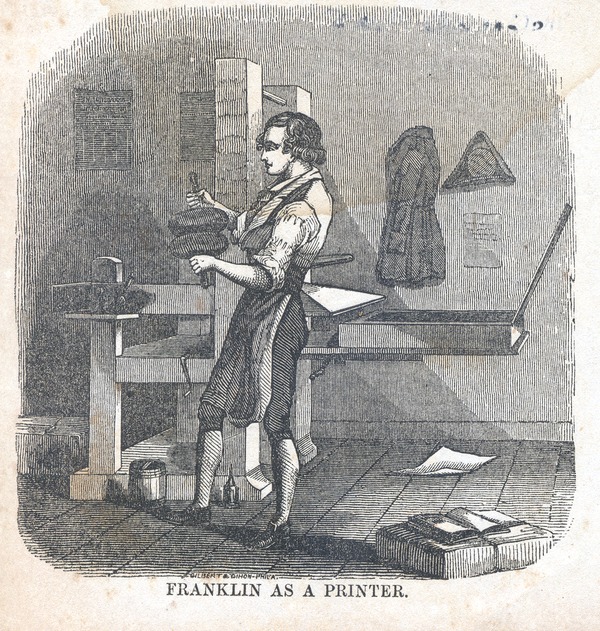What's in the ledgers?
What did the Franklins sell in their shop? How were the ledgers kept? Click below to learn about everything you can find in the ledgers.

Before he became a scientist and statesman, Franklin was a printer. In 1748, he believed his endeavors had earned him enough money to retire at the age of 42. This in turn freed his time to devote himself entirely to science and duties of state. Who was the young Franklin? How did he accumulate so much wealth so rapidly? What social contacts did he have that enabled this?
The Franklins’ Shop Books, 1730-1748, provides tools to explore these questions. The American Philosophical Society holds several of the account books and ledgers Benjamin Franklin and his wife Deborah Read Franklin used to document their business dealings. Though incomplete in nature, these volumes document many aspects of the Franklins’ business pursuits from the start of Benjamin’s printing business to his retirement.
By exploring these documents, we gain wider insight into how the Franklins’ shop operated. Not only do we see sales for Benjamin’s most successful publications, the Pennsylvania Gazette and Poor Richard’s Almanac, we also see sales for other publications, such as Pamela and Cato Major. We see sales for print jobs and book bindings, as well as the exchange of paper, rags, and ink. But there are also more surprising sales: foodstuffs, furniture, scientific instruments. This project provides a series of short, contextual essays about these accounts as well as a searchable database for further exploration and discovery.
What did the Franklins sell in their shop? How were the ledgers kept? Click below to learn about everything you can find in the ledgers.
Deborah Read Franklin helped keep the ledgers and manage the shop. This page examines and explains her role in the Franklins’ economic success.
Print shops go through a lot of paper. Click below to learn how the Franklins leveraged both ends of the supply chain in the local paper trade.